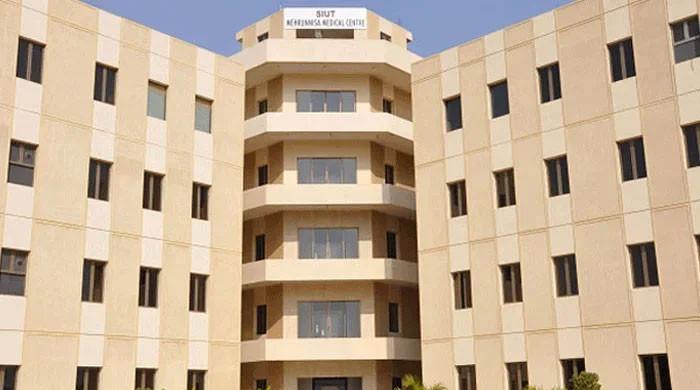Sindh Allocates Funds for Healthcare and Infrastructure
The Sindh government, under Chief Minister Murad Ali Shah, has declared the allocation of Rs9 billion received from the federal government. These funds are purposed for the establishment of Sindh Institute of Urology and Transplantation (SIUT) branches in Rahim Yar Khan and Rawalpindi. This decision acknowledges the commendable performance of Sindh’s public health sector.
During the provincial cabinet meeting, the chief executive stated that the allocated funds would also facilitate the reconstruction of residences for individuals impacted by floods in Balochistan and Khyber Pakhtunkhwa.
“Institutes such as Shaheed Zulfikar Ali Bhutto Institute of Science and Technology (SZABIST) and IBA will also be established, with decisions to be made at a later time,” he mentioned during the cabinet meeting, which included provincial ministers, advisors, special assistants, the Chief Secretary, and relevant secretaries.
Expanding Healthcare Access
Murad highlighted that establishing SIUT facilities (Kidney Hospitals) intends to broaden public health accessibility throughout Pakistan, with a targeted emphasis on assisting the populations of Punjab and neighboring areas within Sindh and Balochistan.
The provincial cabinet has proposed allocating Rs2 billion for constructing SIUT Rahim Yar Khan and Rs1 billion for SIUT Rawalpindi. Additionally, Rs500 million has been earmarked to cover annual operational expenditures.
Ensuring Transparency and Accountability
A recent press release detailed that a transparent monitoring mechanism will be in place. This includes quarterly progress assessments, independent audits, and on-site inspections by Sindh government representatives to guarantee responsible expenditure of funds.
CM Murad emphasized that this endeavor is anticipated to significantly enhance Sindh’s image nationwide, showcasing a dedication to fair development and highlighting provincial generosity and national cooperation.
Housing Reconstruction Initiatives
In relation to rebuilding homes for communities affected by floods, the Chief Minister conveyed that, from the Rs9 billion provided by the federal government, Rs2 billion is designated for reconstructing homes in Sohbatpur, Jaffarabad, and Dera Murad Jamali in Balochistan. Another Rs1 billion is allocated for Dera Ismail Khan in KP.
He further added that the funding includes a proposal to increase housing cash grants, in response to the escalating costs of construction materials and transportation in remote regions.
Road Safety and Regulatory Compliance Measures
Following CM Murad’s directives, the Sindh cabinet has given preliminary approval to essential amendments in vehicle-related laws. These adjustments seek to improve road safety and regulatory adherence across the province.
- Heavy vehicles will now be subject to a registration fee of 0.5% of the invoice value.
- An annual tax of Rs1,000, and a transfer fee of Rs2,000, covering charges for a smart card and number plate will also be implemented.
All commercial vehicles functioning in Sindh must possess valid fitness certifications, or face a penalty of Rs10,000. Regulations for older vehicles have also been tightened: Vehicles exceeding 20 years in age will not be permitted on interprovincial routes, and those over 25 years will be barred from intercity operations. Penalties will become more severe for repeat violations.
The cabinet has mandated a complete prohibition on substandard rickshaws and loaders to bolster road safety.
Entities involved in manufacturing or assembling engine chassis must procure a license priced at Rs3 million, which is valid for one year, with annual renewals costing Rs1 million. Unauthorized assembly or manufacturing will incur fines reaching up to Rs1 million.
Additional reforms involve mandatory certified pre-license training, consisting of at least 30 hours, for Heavy Transport Vehicle (HTV) drivers from institutions recognized by the government. The age prerequisite for securing an HTV license has been lowered from 24 to 22 years, contingent upon the applicant possessing a minimum of one year of Light Transport Vehicle (LTV) driving experience.
To enhance enforcement, an automated detection system will be introduced. Vehicles parked in restricted zones will receive Fixed Penalty Notices, which will be affixed to the vehicle or delivered directly to the driver. Fines for unapproved modifications, such as tinted windows, may amount to as much as Rs300,000 for recurring offenses.
The government is planning to establish specialized Traffic Courts to manage traffic-related infractions effectively.



Comments (0)
No comments yet. Be the first to comment!
Leave a Comment